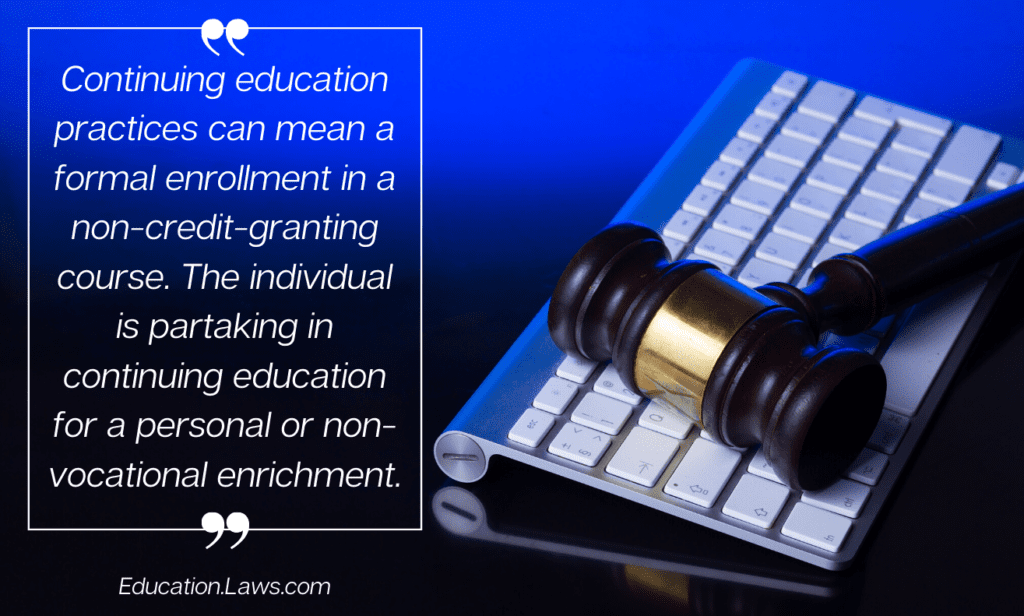
Online studies, for both undergraduates and graduate students, have been steadily growing. The social distancing requirements caused by the COVID-19 pandemic has moved the classroom from the traditional brick and mortar settings to the web. This has helped bring online modes of higher education even more to the forefront of educational models. If there is any silver lining in this current worldwide health crisis, it may be that the imaginative models of distance education that have developed and used in colleges is now becoming mainstream. This is a new flexible model of education.
Convenience and cost are two key considerations when looking at online education. An advantage of online learning over traditional education settings is that often tuition is lower.
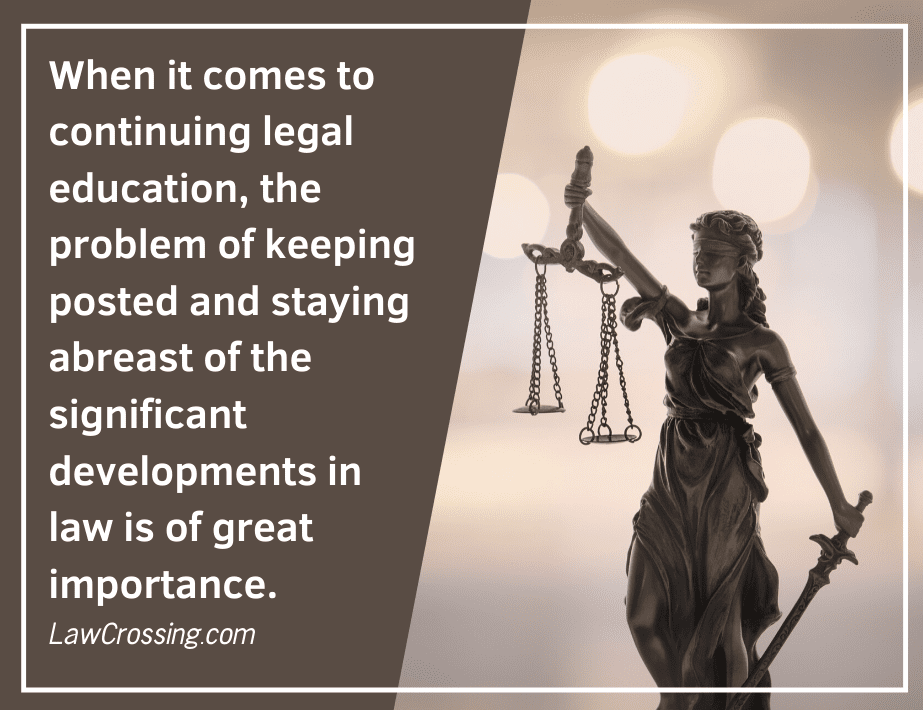
While one cannot earn a J.D. online, there are a number of excellent, free online courses dealing with law and jurisprudence. This list provides twelve such courses offered by top universities and colleges by world-renown experts in the law. You can pursue a diverse array of topics, including justice, civil rights, banking law, copyright law, and others. While these courses will not make you a lawyer or legal clerk, they are free of charge and will certainly help you understand your rights and duties under the law.
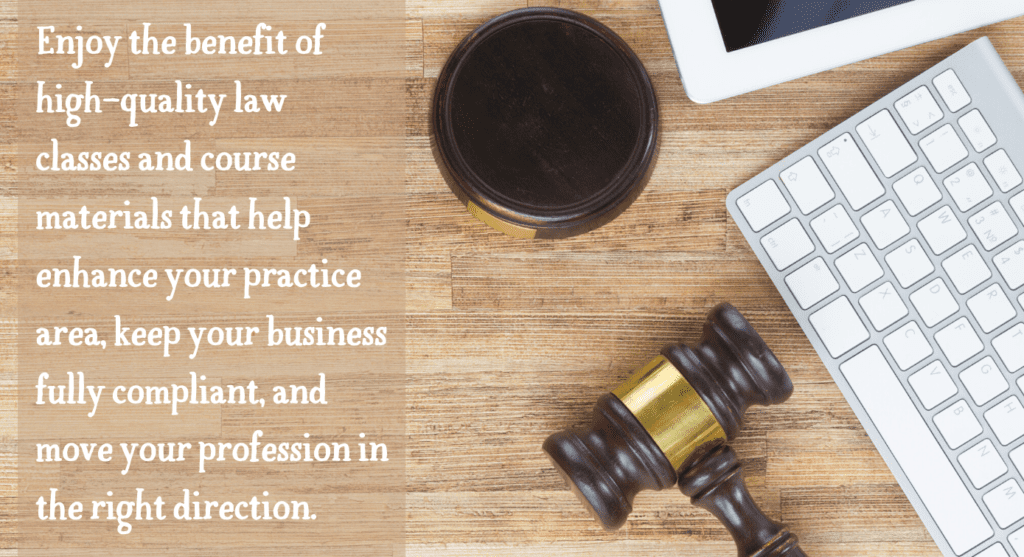
To find out more about free online programs related to law, here are 12 free online courses that may get you interested in accelerating your legal career:
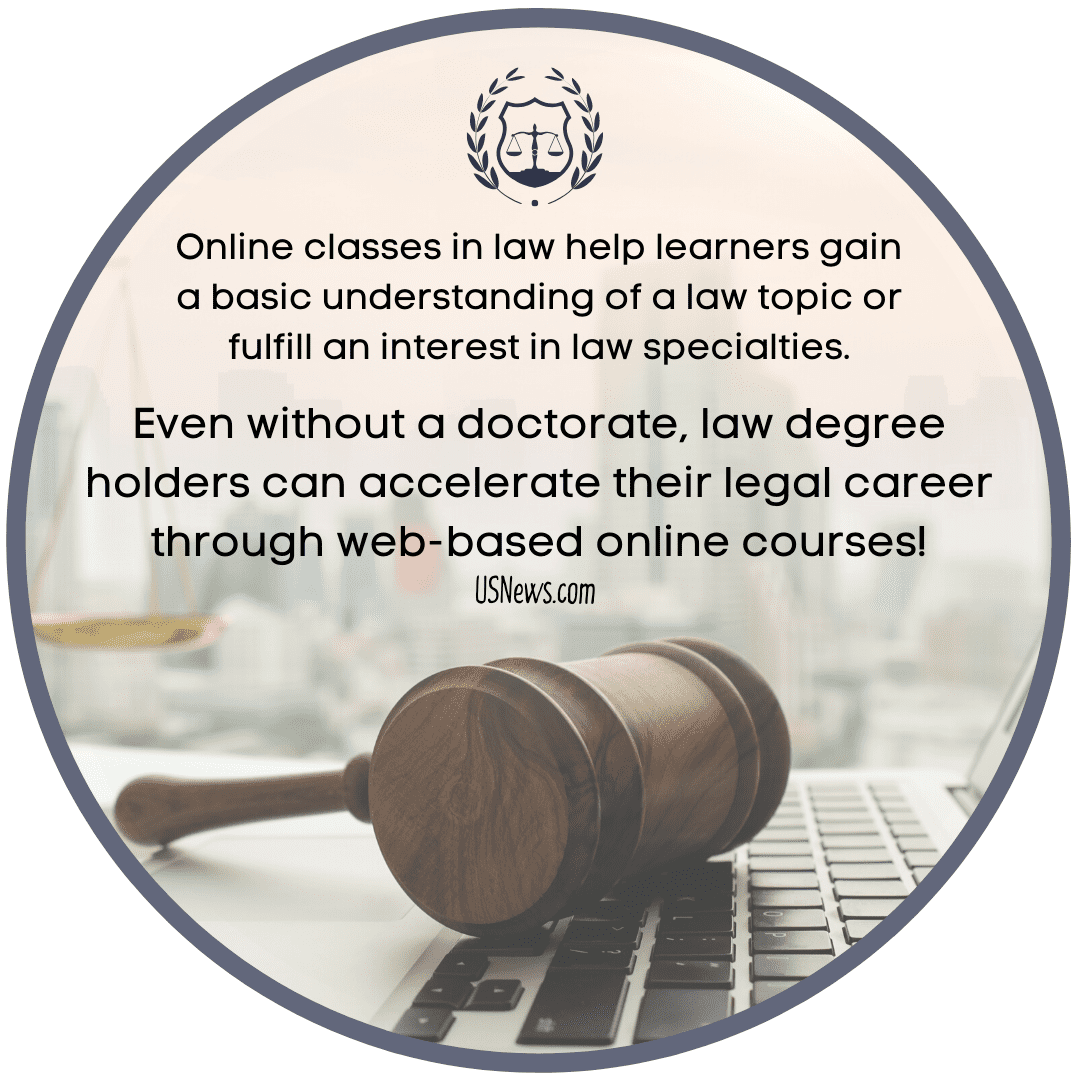
Justice
An Introduction to American Law
Civil Liberties
A Law Student’s Toolkit
Legal Ethical Governance
Foundations of Central Bank Law
Law and Society
Contract Law: From Trust to Promise to Contract
Intellectual Property Law Specialization
Media Law
The Supreme Court, Civil Liberties and Civil Rights
Healthcare Law Specialization
*****
Are you interested in earning an online Law degree? The following links will help you choose a school that is right for you:
Best Online Schools for Associate of Criminal Justice Degree Programs
20 Most Affordable Schools for Online Legal Studies Degree Programs for 2020
Top 10 Online Schools for Master’s in Law
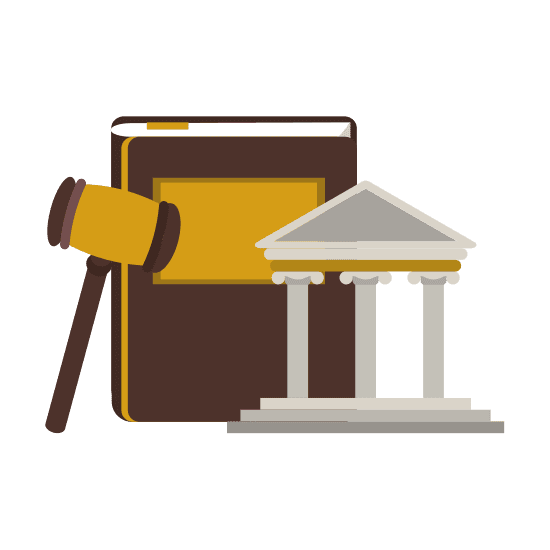
Justice
Harvard University via edX

Justice is a basic human need. It makes sure that the system is equally fair and that it is applied to everyone. A person’s conduct must also be proportional to the protections, benefits, and consequences under the law.
Headed by Professor Michael Sandel, this course has become a staple at Harvard. For twelve weeks, students will explore the basics of moral and political philosophy. Gaining insight on criminal and social justice, you will also examine current issues such as human rights debate, same-sex marriage, the role of markets, and others. Video transcripts are available in seven languages, including Chinese, Dutch, and Spanish. In applying classical and contemporary theories, the course aims to allow learners the opportunity to develop their rational way of thinking in raising questions and related arguments.
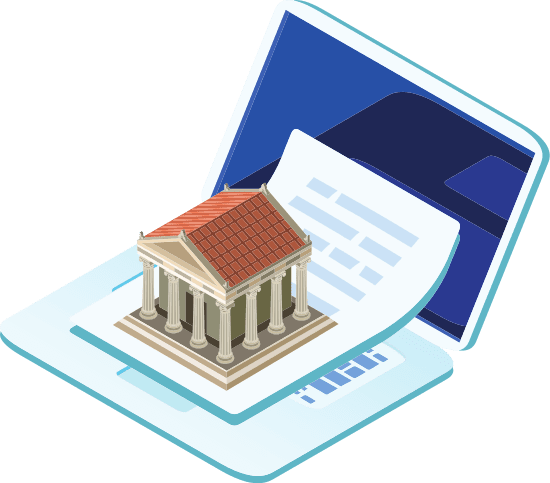
An Introduction to American Law
University of Pennsylvania via Coursera
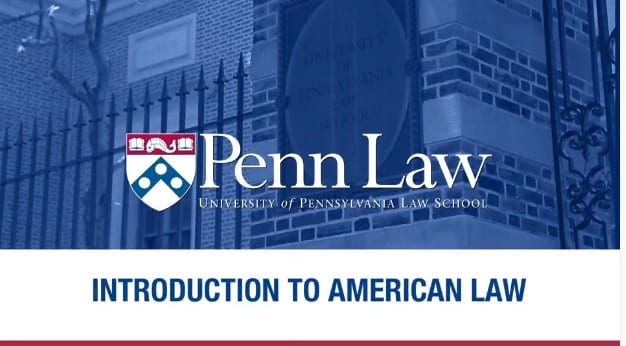
For a beginner, the US legal system is a complex structure. In its codified and uncodified natures, it is founded on the federal law whereby the 50 states can set up their own system of criminal and civil laws.
This free course is available with varying start dates and runs for seven weeks. The syllabus will have a general overview of six areas in US laws. These are Tort Law, Contract Law, Property Law, Constitutional Law, Criminal Law, and Civil Procedure. With the availability of a paid certificate, the online class aims students to have a more profound thought on the law applicable in different settings if such arising legal situations occur.

Civil Liberties
Princeton University via edX
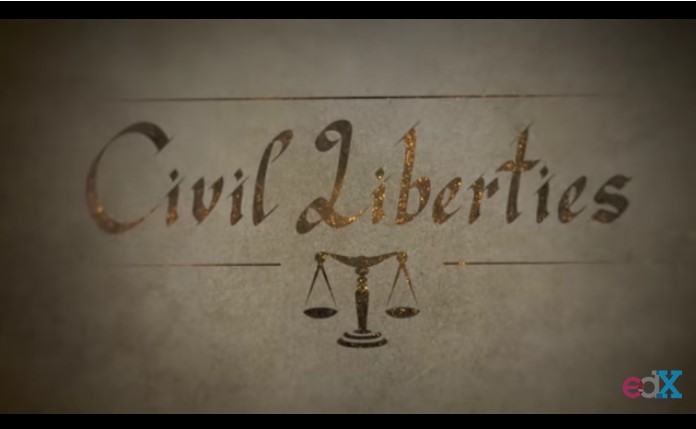
We often interchange freedom, rights, and liberties due to identical meanings. Despite having distinct concepts, we can identify civil liberty as the actual fundamental freedom guaranteed by the Bill of rights and the Constitution. It is aimed at protecting people from tyranny. Since every human deserves to be treated equally, these issues are crucial as we look back to the very core concepts of law-making.
For two to five hours every week, participants will have lessons about the background of US civil rights and liberties. There will be class investigations on civil-related matters such as marriage, slavery, free speech, abortion, and religion. With these issues, you will have an insight into revolutionary Supreme Court arguments that took place. In seven weeks, the course will also hone your critical-thinking skills in analyzing civil controversies on both ends of the legal perspectives.

A Law Student’s Toolkit
Yale University via Coursera

Pursuing a degree in law, every student must have a starting point. In this online course, it is intended for both undergraduates and fresh graduates who want to begin a career in law school. With a hectic law school life, you should initially assess if you are prepared for it by a “toolkit” that introduces the fundamentals of law and related fields.
Divided into seven sections, the subject will give you basic concepts and terminologies of law. It will take twenty-one hours to finish with supplemental readings and assignments to work on. With a series of short lectures and video lessons, you will learn about the relationship of law with other disciplines such as economics and psychology. As an aim of the course, there will be video discussions about legal issues and procedures from academic seniors. Ultimately, this will develop your own analytical and judicial reasoning skills to make the most of yourself in law school and beyond.

Legal Ethical Governance
Florida International University via Open Education by Blackboard
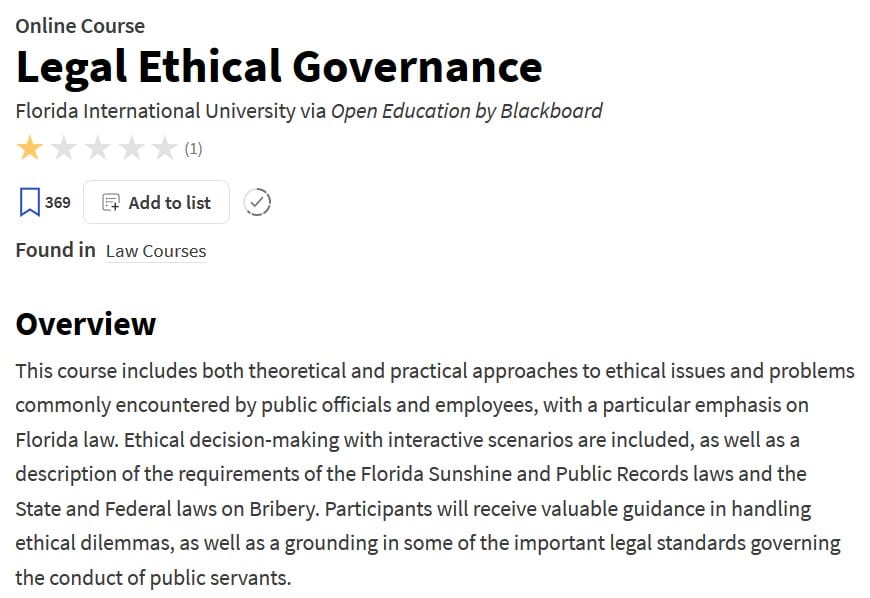
The primary relationship of law, ethics, and governance are to ensure high standards of practice and behavior in a territory. With a set of policies and procedures for a standard of beliefs and values, it gears toward people’s interest by making ethical recommendations and suggesting legal solutions for good governance.
Conducted by Florida International University, the course will mainly focus on their state laws. It will take a closer look at the ethical dilemmas experienced by public servants with their moral and practical methods. This self-paced online class will have interactive examples that will test their ethical decision-making skills. The course will guide learners on how to handle ethical issues and their legal principles in the action of these public officials.

Foundations of Central Bank Law
International Monetary Fund via edX
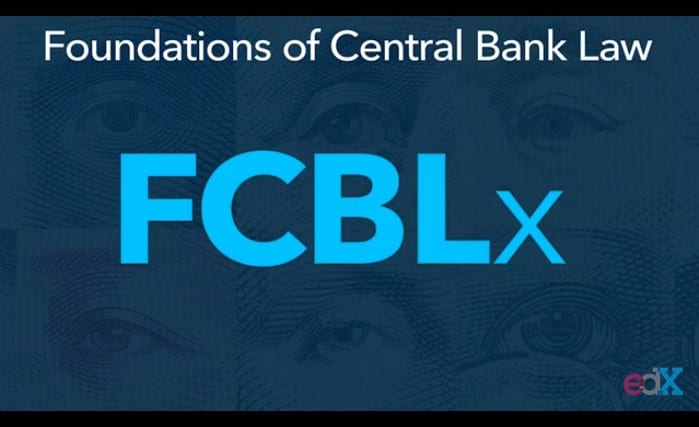
With 189 countries as members, the International Monetary Fund (IMF) is aimed at economic growth, financial cooperation, international trade, and alleviating global poverty. It also maintains monetary stability to its international members through the surveillance of its central banks in every country. These financial institutions are given with authority to oversee monetary distribution, regulation, and policy.
In this course designed by the IMF, students will learn central bank laws and international approaches on legislative issues. While interested learners need to have a law degree and are working in a financial-related institution, one can finish it within a six weeks’ time frame. The course syllabus will cover best practices around the world. Additionally, students will have practical exercises on analysis and recommendation that corresponds to its central bank legal framework. For an optional paid certificate, the nine-course modules will also tackle amendment proposals and consultation procedures with video lectures of senior IMF instructors.
*****
Got a minute? Take a look at this: The Country’s Highest Paying Jobs in 2020
Recommended Schools

Law and Society
Massachusetts Institute of Technology via MIT Open Courseware
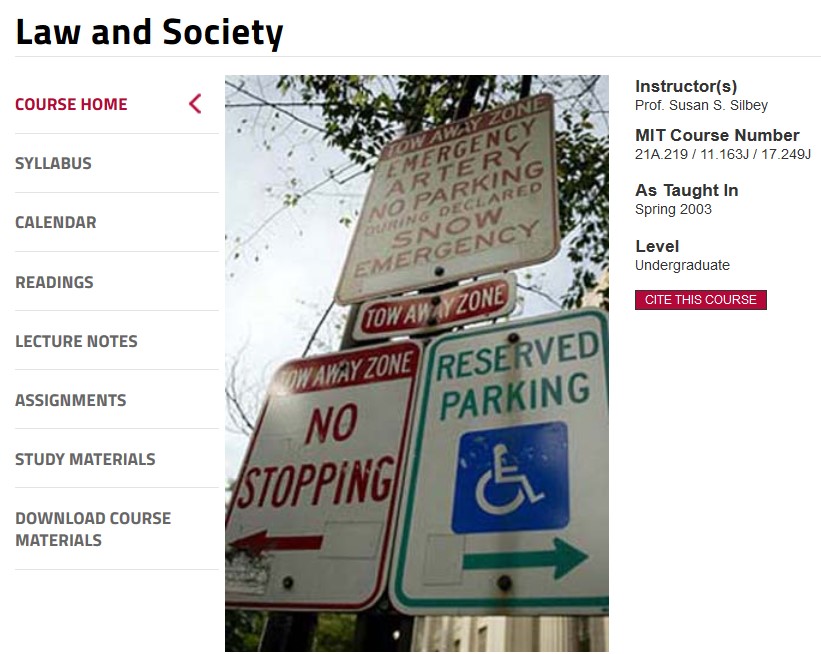
Law and society studies is a multidisciplinary field that addresses societal development, practices, and norms. It covers cultural studies, political science, history, anthropology, jurisprudence, and even philosophy. Given its vast range, a beginner may find it hard to simplify its legislative scope and limitations.
The course lecture will have two weekly sessions with one film screening for twenty-five weeks. There will be topics regarding the introduction of law and its legal implications. In addition, it will discuss and take a closer look at how our legislative bodies can affect a variety of factors such as economic, social, and political processes. The online class offers downloadable lecture notes, assignments, and reading materials. Students are also required to submit three short papers and a final paper to complete the course.

Contract Law: From Trust to Promise to Contract
Harvard University via edX
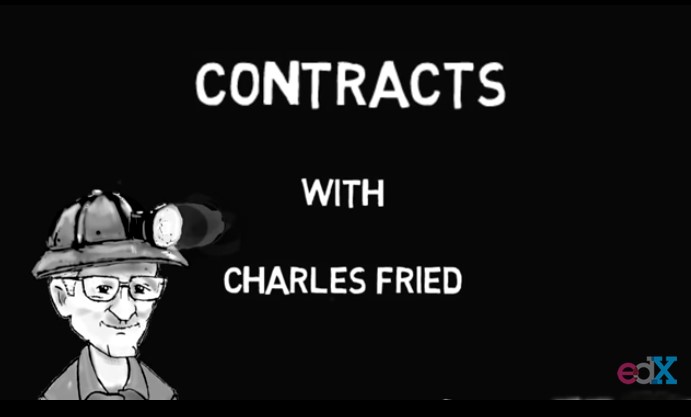
Legally bound by a set of agreements on both parties, a contract law serves to protect your rights. The law has the authority to oblige the other party to perform the agreed terms, or should there be non-performance, can pay for the damages done. Through this written promise, it underpins businesses and other sectors of society.
This legal course will explore on fundamentals of contracts, as explained by contract law global expert, Harvard Professor Charles Fried. In eight weeks, learning materials and updated case samples for this topic are available with additional payment for a verified certificate. In addition to this subject, it will help students with contract making, coverage, and restrictions in its legislative approach. With the instructor’s storytelling approach in his video lectures, you will also be guided in assessing potential contract problems and outcomes.

Intellectual Property Law Specialization
University of Pennsylvania via Coursera

Intellectual property involves businesses, processes, and ideas which should reap the full benefits of their creations and products. In intellectual property theft, credits for inventions and duplication of ideas from an individual are done without legal permission. This may cause a decline in profit from the original creator. Thus, it is crucial to protect these rights to foster human innovation and business growth.
An intermediary level of specialization, this free course is recommended for entrepreneurs that want to have a deeper understanding of brand marketing and business strategies of their product at a legislative level. In four months, students will explore the US law on intellectual property and differentiate its types; copyright, trademark, and patent law. The subject will also tackle case-related studies and plan strategies for brand protection.

Media Law
New York University via edX

In this digital mileage, our rights to freedom of information, expression, and free media must also integrate with other laws such as confidentiality, privacy, and intellectual property. As a legal approach to communication practice, this is where media law comes in. With the advent of social media, sending emails, pictures, and videos, this legislative is becoming relevant not only to journalists and lawmakers but also to responsible citizens.
This introductory course reviews the basic principles of media and copyright law in America. With studying its theoretical and practical aspects, learners have fourteen weeks to finish this free online class. Included in the syllabus are also media-communication regulations, ethical issues in the past, and outcome prediction of future legislative challenges. There is an optional payment for a verified certificate once students finish the program.

The Supreme Court, Civil Liberties and Civil Rights
Massachusetts Institute of Technology via MIT Open Courseware
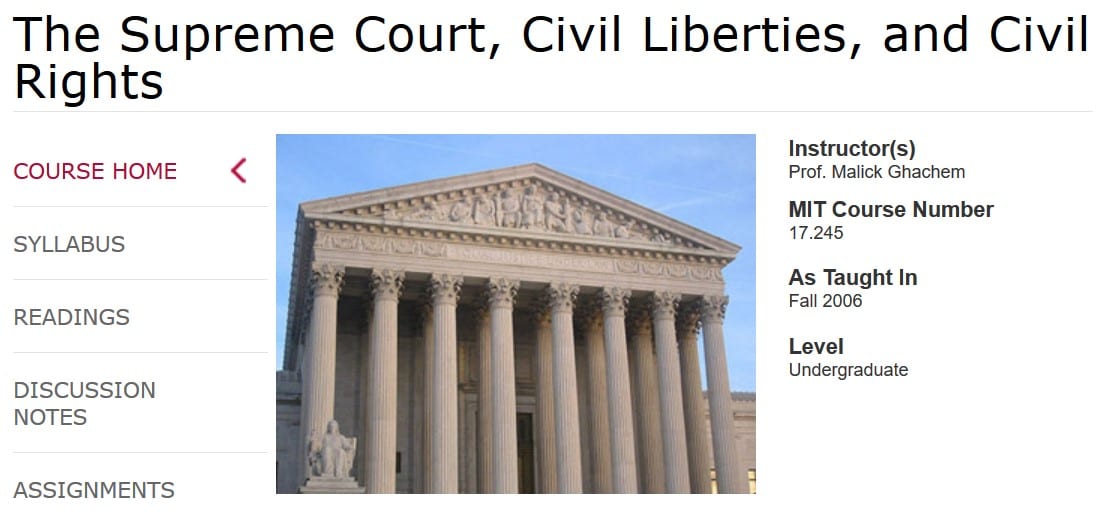
In the American federal judiciary, the Supreme Court is the highest in the country. Its institutional powers extend to legal jurisdictions and injustice case reviews. In some instances, it handles political overtones as it represents one of the three government branches for checks and balances. Overall, by interpreting the Constitution, the Supreme Court ensures that it protects the civil rights and liberties of the people.
The course syllabus is composed of twenty-five sessions. For two sessions a week, students will learn about the Supreme Court function, history, and structural framework. As the class will go along, you will gain more in-depth knowledge and understanding of past and contemporary issues that surround this judiciary branch. This will be provided on case presentations and downloadable lecture notes. Supplemental topics such as gender discrimination, war, religion, and immigration will also be explored in the duration of discussion.

Healthcare Law Specialization
University of Pennsylvania via Coursera

As geared toward protecting the welfare of the patient, Health Care Law consists of different legal disciplines from health reform, insurance, mental health care, and emergency medicine. Through these laws, it creates a drive for action by committing to shared goals and visions. These make different institutions and organizations cooperate and form a unified discipline and practice.
With related experience required, this course will introduce students to the American health law and the structure of the health care delivery system. There will be concepts about the legal aspects of health care reforms and medical practice. Topics on privacy law (HIPAA) for patients, healthcare workers, and intellectual property in this industry, and how law influences medical research and pharmaceutical industries, will also be discussed. For four months, you will also learn about global approaches to the health care delivery model and issues in ethical and legal matters.

Education is limitless. While online degree courses are a reasonably good option for traditional university learning, it still offers knowledge for those who seek it. Provided that the courses are beneficial to your profession and career growth, these free online classes are indeed a brilliant way to upskill, especially in these times when we are urged to stay at home!
*****
Do you need some ideas about how to succeed in any online class or degree program? Check out these ideas:
28 Great Resources for the New Online College Student
20 Effective Ways to Calm Your Nerves Before an Exam
51 Tips Every College Freshman Should Know
